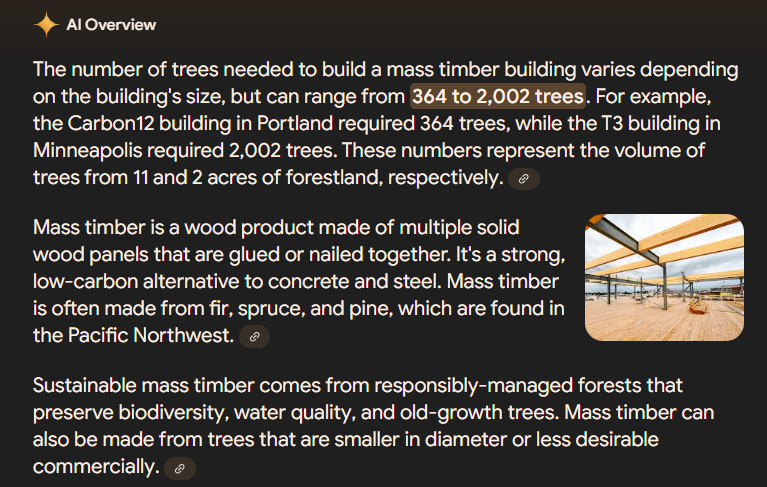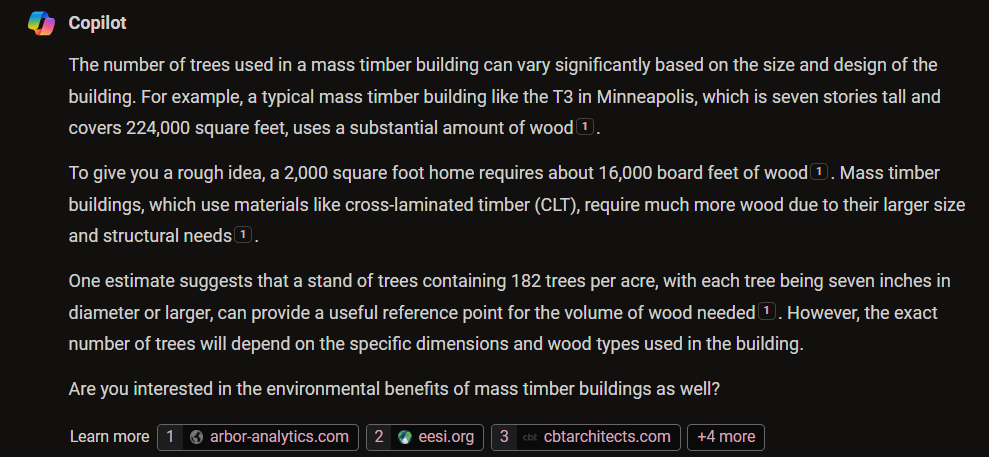
I use AI tools on a daily basis. One of my most immediate concerns is how AI “one-boxes” the output. This is a concept that all content creators that share information on the web should be aware of.
Chris Dixon, author of the excellent book Read Write Own: Building the Next Era of the Internet, describes one-boxing as this:
“One of the worst things that can happen to a website is “one-boxing,” when Google extracts a site’s content and places a summary at the top of its search results so users no longer need to click to get an answer.”
Many AI tools like Google’s Gemini and Open AI’s ChatGPT do exactly this. Dixon warns in his book that AI could “one-box the entire internet.”
I’ve been curious to see how this impacts some of the content I’ve produced, mostly through my blogs and articles posted on this website. A few years ago I wrote a post titled “How many trees make a mass timber building?”. It was a thought exercise piece, the kind of question you might ask a PhD student in a qualifying exam. (In the same spirit as the “How many windows are in New York City?” question.) There’s no right answer – working out how to solve the problem is where the fun happens.
When I type “how many trees are in a mass timber building?” into Google, the Gemini output summarizes my blog post in the first paragraph:

Copilot, powered by ChatGPT, provides similar output. This output “shows its work” and it generally more speculative in tone about the range in the number of trees needed:

Both AI outputs provide a link to my original article, to which I say thanks. But I know from my use of AI tools, people rarely click ahead to learn more. This issue is becoming ever more common as AI is replacing the historical role of search engines.
Experts that create content should receive the appropriate amount of credit and attribution that they deserve. Content creators that rely on website traffic are especially concerned. For me as a consultant, I value website visitors knowing that the article was written by me and can see my company logo with contact information.
There are many ongoing legal challenges concerning AI and copyright law. Of course, the upside is that any content you create remains your intellectual property.
I am not entirely sure how human-created content will integrate with AI in the long-term. In the short-term, i.e., in the next year, I do think that experts, thought leaders, and content creators will need to have a say about how AI scrapes content from the web to generate output. Whether you’re a thought leader in forestry, carbon markets, or sustainability, be mindful of what’s happening with these AI tools.
Oh, and do give Chris Dixon’s book a read. It provides a great vision for what the future of the internet could be.
–
By Matt Russell. For more, subscribe to my monthly email newsletter to stay ahead on data and analytics trends in the forest products industry.